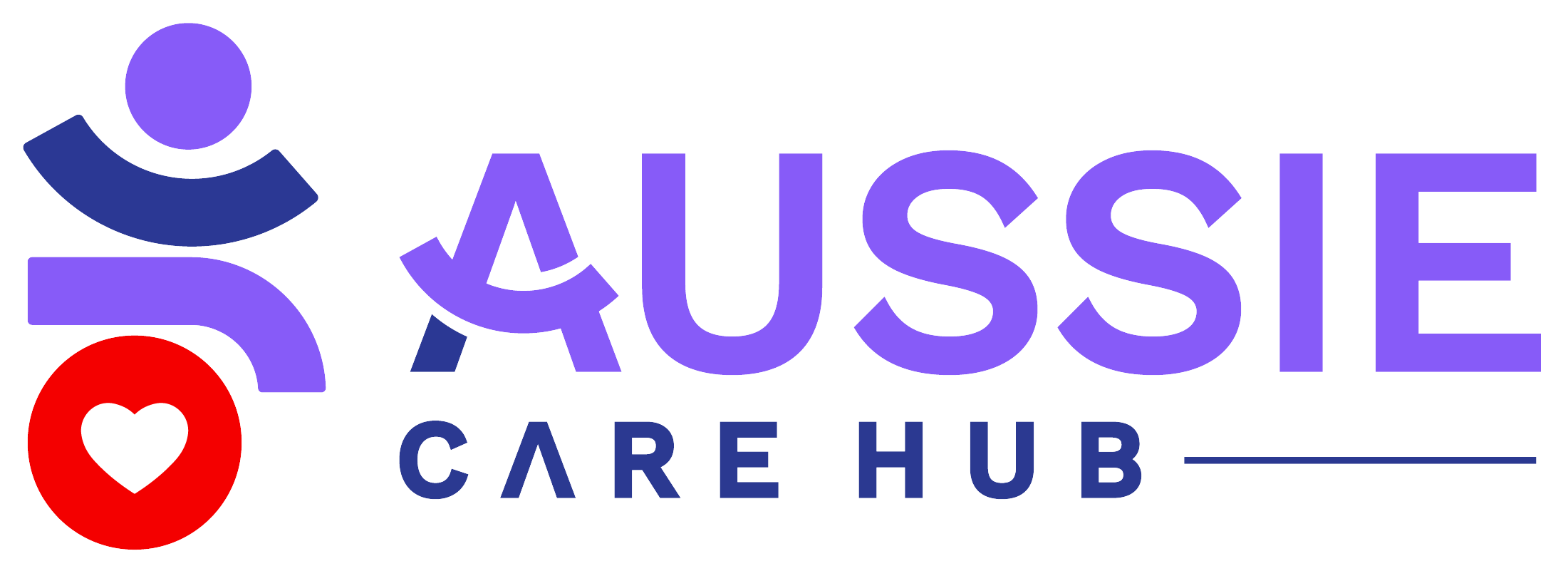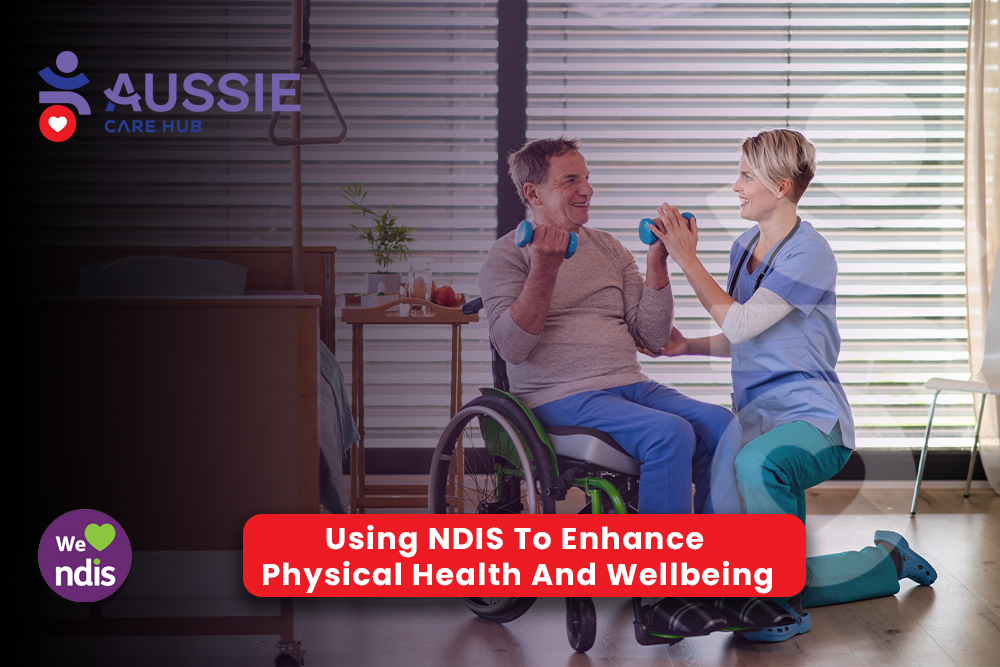The National Disability Insurance Scheme (NDIS) is a program implemented by the Australian government to provide support and services for individuals with disabilities. While the primary focus of NDIS is on improving the quality of life for people with disabilities, it can also be utilized to enhance their physical health and wellbeing. In this article, we will explore the various ways in which NDIS can be used to promote physical health and wellbeing, and the benefits it can bring to individuals with disabilities.
1. Access to Allied Health Services
Under the NDIS, participants have access to a range of allied health services that can greatly contribute to their physical health and wellbeing.
These services encompass physiotherapy, occupational therapy, speech therapy, and exercise physiology Through regular sessions with these professionals, individuals with disabilities can receive tailored interventions, exercises, and therapy that assist in improving their motor skills, mobility, coordination, and overall physical health.
The NDIS funding allows participants to access these services on a regular basis, thus providing ongoing support for their physical wellbeing. Having access to allied health services not only improves the physical health of individuals with disabilities but also enables them to participate in activities that they may have struggled with before, leading to increased independence and improved overall quality of life.
· Tailored Interventions and Therapies
One of the key benefits of accessing allied health services through NDIS is the ability to receive tailored interventions and therapies. Allied health professionals have the knowledge and experience to assess an individual’s specific needs and design personalized treatment plans. This personalized approach ensures that
individuals receive the most effective interventions that target their unique challenges and goals.
For example, a physiotherapist can assess an individual’s physical abilities and design a program that includes exercises, stretches, and mobility training to improve their strength, coordination, and range of motion. Similarly, an occupational therapist can provide strategies and adaptations to help individuals overcome barriers in their daily activities and promote independence.
· Improved Motor Skills and Mobility
Regular sessions with allied health professionals can have a significant impact on improving motor skills and mobility. Through targeted interventions and therapies, individuals with disabilities can work on developing their strength, balance, coordination, and motor planning skills.
Physiotherapy sessions can focus on exercises that build muscle strength and improve mobility. Occupational therapy can include activities that improve fine motor skills and enhance an individual’s ability to perform daily tasks independently. Speech therapy can assist individuals with speech and swallowing difficulties, thereby improving their overall physical health by addressing nutrition and communication challenges.
· Independence and Functional Abilities
The access to allied health services through NDIS plays a vital role in promoting independence and functional abilities for individuals with disabilities. By addressing specific physical limitations and challenges, individuals can acquire skills and strategies to perform daily activities with more ease and confidence.
For instance, an exercise physiologist can work with individuals to develop an exercise regime that improves cardiovascular fitness and muscular endurance, enabling them to engage in daily activities and enjoy an active lifestyle. Occupational therapists can provide assistive devices and training to enhance independence in personal care, meal preparation, and home management.
· Enhanced Overall Quality of Life
The access to allied health services through NDIS not only improves physical health but also significantly enhances the overall quality of life for individuals with disabilities. By addressing physical challenges, individuals experience greater comfort, independence, and participation in their daily lives.
Moreover, allied health professionals provide valuable support and guidance to individuals and their families, helping them navigate their journey towards improved health and wellbeing. They can educate individuals and their caregivers on strategies for managing pain, preventing injuries, and maximizing functional abilities. This support can enhance overall emotional and mental
wellbeing, as individuals feel more empowered and equipped to take control of their health.
2. Assistive Technology and Equipment
Another way in which NDIS can enhance physical health and wellbeing is through the provision of assistive technology and equipment. This includes mobility aids such as wheelchairs, walkers, and prosthetics, as well as other devices that assist with daily living activities.
Assistive technology enables individuals with disabilities to improve their mobility and independence. For example, a person with limited mobility can benefit from a power wheelchair, which allows them to move around freely and engage in physical activities. Similarly, a person with a hearing impairment can benefit from hearing aids, which improves their ability to communicate and participate in social interactions.
By providing access to assistive technology and equipment, NDIS empowers individuals with disabilities to actively engage in physical activities and improve their overall health and wellbeing.
· Empowering Mobility and Independence
One of the key benefits of accessing assistive technology and equipment through NDIS is the empowerment of mobility and independence. Individuals with disabilities often face mobility challenges that hinder their ability to move around freely and engage in physical activities. However, with the right assistive technology, these individuals can regain or improve their mobility, leading to enhanced physical health and wellbeing.
For example, a person with lower limb impairment can benefit from a power wheelchair, which provides them with the ability to move independently, access various environments, and engage in social activities. Similarly, a person with a hearing impairment can benefit from hearing aids, allowing them to communicate effectively and participate fully in conversations and social interactions.
· Enabling Access to Activities and Recreation
Assistive technology and equipment also enable individuals with disabilities to access activities and recreation that may have been previously challenging or inaccessible. NDIS funding can be utilized to provide tools necessary for individuals to engage in physical activities such as adaptive sports, swimming, hiking, and other recreational pursuits.
For instance, an individual with a mobility impairment can benefit from an all-terrain wheelchair that allows them to explore nature trails and enjoy outdoor activities. Similarly, a person with a vision impairment can utilize assistive
technology such as screen reading software or braille displays to access information and participate in computer-based activities.
By enabling access to activities and recreation, assistive technology and equipment not only enhance physical health but also contribute to overall happiness, social participation, and improved quality of life for individuals with disabilities.
· Improved Safety and Wellbeing
Assistive technology also plays a vital role in enhancing the safety and wellbeing of individuals with disabilities. Devices such as fall detection systems, bed alarms, and medication reminder systems can help prevent accidents and promote a safer living environment.
For example, a person with epilepsy can benefit from a seizure alarm or monitoring system that alerts caregivers or support staff in the event of a seizure. This immediate response can prevent injury and offer peace of mind to the individual and their caregivers.
· Customization and Personalization
One of the key advantages of accessing assistive technology through NDIS is the ability to customize and personalize devices to individual needs and preferences. Assistive technology providers work closely with individuals with disabilities and allied health professionals to ensure that the technology is tailored to their specific requirements.
This customization can include adjustments to device settings, modifications for comfort, or the creation of bespoke solutions for unique challenges. By ensuring a personalized fit, individuals with disabilities can benefit from assistive technology that maximizes its effectiveness and enhances their physical health and wellbeing.
3. Health and Wellness Programs
NDIS also supports the implementation of health and wellness programs specifically designed for individuals with disabilities. These programs focus on improving physical fitness, nutrition, and overall mental wellbeing. They can include activities such as adapted exercise classes, nutrition education, and mindfulness programs.
By participating in these programs, individuals with disabilities can improve their physical fitness, manage their weight, and enjoy the benefits of a healthy lifestyle. Additionally, these programs often provide a supportive social environment, allowing participants to connect with others who share similar experiences and challenges.
· Access to Tailored Programs
One key benefit of accessing health and wellness programs through NDIS is the availability of tailored programs that address the specific needs and goals of individuals with disabilities. These programs are designed by health and wellness professionals who have expertise in working with individuals with disabilities.
For example, individuals with physical disabilities may benefit from adapted exercise programs that focus on building strength, improving flexibility, and enhancing cardiovascular fitness. On the other hand, individuals with intellectual disabilities may benefit from programs that focus on sensory integration, movement therapy, and enhancing coordination and motor skills.
The tailored nature of these programs ensures that individuals receive the appropriate interventions and support that align with their specific abilities and goals, leading to improved physical health and overall wellbeing.
· Promotion of Exercise and Physical Activity
Regular exercise and physical activity are vital components of maintaining good physical health and wellbeing for individuals with disabilities. Through NDIS-supported health and wellness programs, individuals have the opportunity to participate in various forms of exercise and physical activity that are specifically designed to meet their needs.
Physical activity programs may include activities such as wheelchair basketball, inclusive dance classes, adaptive swimming, yoga, and strength training. These activities not only improve physical fitness but also contribute to weight management, cardiovascular health, and overall functional abilities.
By promoting exercise and physical activity, health and wellness programs facilitated by the NDIS empower individuals with disabilities to take an active role in improving their physical health and overall wellbeing.
· Nutrition Education and Healthy Eating
Good nutrition is essential for everyone, including individuals with disabilities. However, there may be specific dietary considerations or challenges that individuals with disabilities face. NDIS-supported health and wellness programs often include nutrition education and support to promote healthy eating habits and overall nutritional wellbeing.
Nutrition education may include topics such as meal planning, portion control, understanding food labels, and addressing any specific dietary needs or restrictions. Health and wellness professionals can work with individuals to develop personalized nutrition plans that take into account their abilities, preferences, and any specific health conditions.
By providing nutrition education and support, NDIS-supported programs ensure that individuals have the knowledge and tools to make healthy food choices, contributing to their physical health and wellbeing.
· Mental Wellbeing and Stress Management
The impact of mental and emotional wellbeing on physical health cannot be underestimated. NDIS-supported health and wellness programs recognize the importance of mental wellbeing and often incorporate strategies for stress management, mindfulness practices, and emotional support.
These programs may include activities such as meditation, relaxation techniques, art therapy, and counseling support. By addressing mental wellbeing and stress management, individuals with disabilities can experience reduced levels of anxiety and depression, improved sleep, and better overall physical health outcomes.
· Enhanced Overall Quality of Life
Access to health and wellness programs through NDIS significantly enhances the overall quality of life for individuals with disabilities. By focusing on physical health, nutrition, exercise, and mental wellbeing, these programs create a holistic approach to health and wellbeing.
Individuals benefit from improved physical fitness, increased energy levels, better sleep patterns, enhanced self-esteem, and opportunities for social interaction and community engagement. Health and wellness programs under NDIS empower individuals to take an active role in their own health and wellbeing, enabling them to enjoy a higher quality of life.

